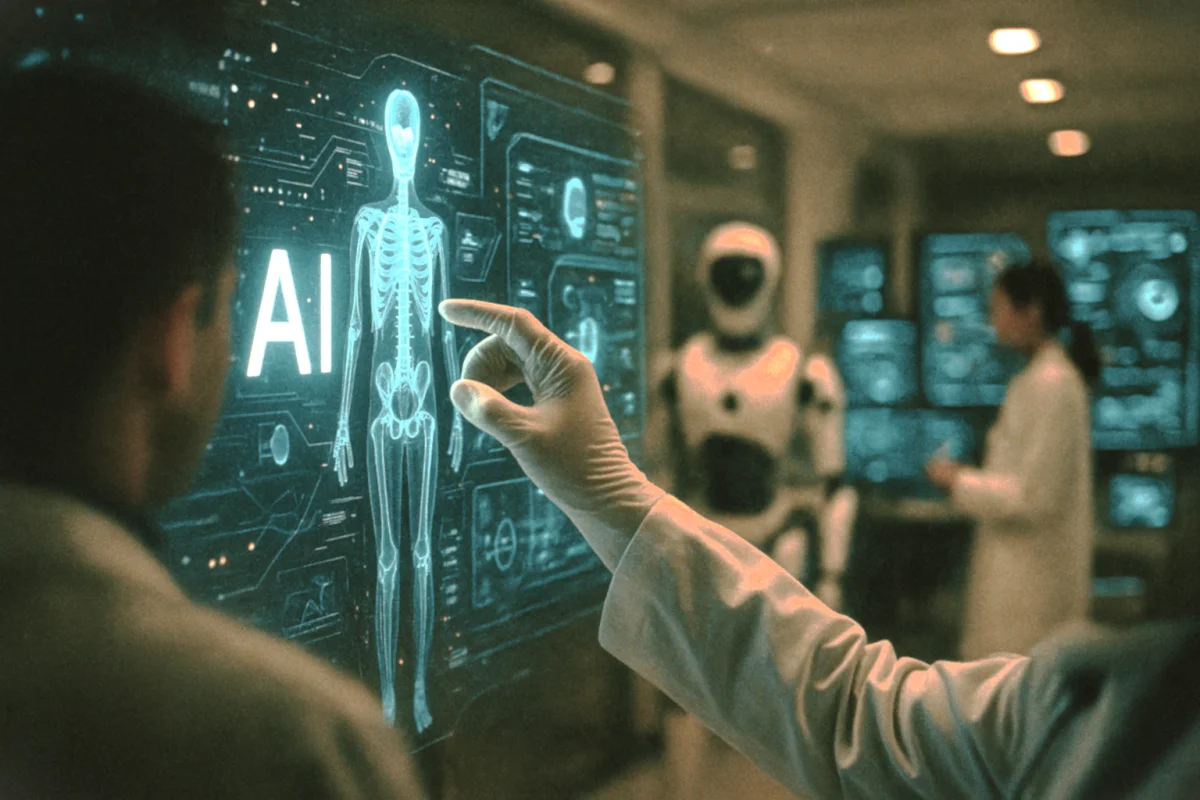How Does Artificial Intelligence Work in Medicine?
Artificial Intelligence (AI) has become one of the most significant technological advancements of the 21st century. In the field of medicine, its integration is rapidly transforming diagnostics, treatment, and patient care. While doctors once relied solely on personal experience and traditional research, today AI algorithms provide them with an additional tool—a data-driven, fast, and precise analysis.

How AI Works in Medicine
AI systems use data analysis and advanced algorithms to identify patterns invisible to the human eye. For example, deep learning models process hundreds of thousands of medical images and learn to detect pathologies.
- Diagnostics — AI programs analyze MRI, CT, and X-ray scans to detect diseases at their earliest stages.
- Personalized Treatment — by processing genetic data, AI suggests individualized treatment plans.
- Patient Monitoring — through integration with smart devices, the system tracks patient health in real time.
Where Is AI Used?
AI in medicine is already applied in multiple fields:
- Oncology — early tumor detection through imaging.
- Cardiology — predicting heart disease and assessing risks.
- Neurology — improving diagnosis of Alzheimer’s and Parkinson’s disease.
- Pharmacy — discovering new drugs with the help of algorithms.
Advantages
- Speed — diagnoses that once took days can now be made in minutes.
- Accuracy — advanced data analysis reduces human errors.
- Accessibility — AI enables access to services that were traditionally unavailable.
Challenges
Despite its benefits, AI in medicine faces serious challenges. Data privacy is critical to protect patient information. Doctors must also correctly interpret AI-generated results. Additionally, ethical concerns remain unresolved: how much should medicine rely on machine-made decisions?
Real-World Examples
There are already successful cases worldwide: IBM Watson Health offers personalized treatment plans for cancer patients, while Google DeepMind’s algorithms have surpassed doctors in accuracy when diagnosing eye diseases. These examples show that the future of AI in medicine is not just a possibility but a growing reality.
Conclusion
Artificial Intelligence in medicine is already transforming healthcare. It offers speed, accuracy, and innovative opportunities but also requires regulations, ethical frameworks, and continuous oversight by doctors. 👉 Do you think AI could one day fully replace doctors, or will it remain only a supportive tool?
✍ Article Author
- Registered: 26 July 2025, 15:34




 Silent Cat 🐾
Silent Cat 🐾